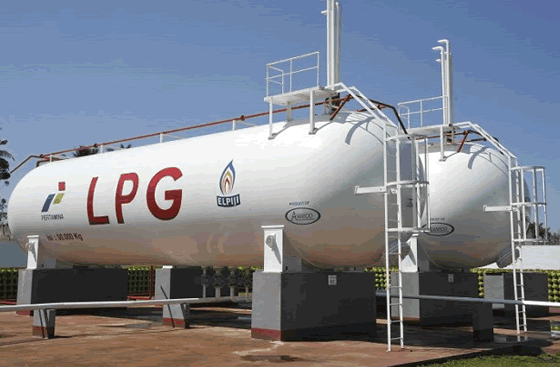Education is key to stopping gas explosions – Tema MCE
 The Tema Metropolitan Chief Executive (MCE) says the training of personnel at Liquefied Petroleum Gas (LPG) fillings stations are not adequate and could be the cause of gas explosions in Ghana.
The Tema Metropolitan Chief Executive (MCE) says the training of personnel at Liquefied Petroleum Gas (LPG) fillings stations are not adequate and could be the cause of gas explosions in Ghana.
“That was the more reason why I started checking on their training certificates. I realized all the training they’ve had was only from the Factory Inspectorate Division. That is not enough so the Assembly together with EPA, NPA and Tema Regional Fire Service are putting measures in place to start training all the gas station attendants,” he said.
Mr. Felix Mensah Nii Annan-La said this after touring some LPG filling stations in Tema, together with the committee set by the Tema Metropolitan Assembly (TMA) to check the activities of LPG filling station operators in the Metropolis.
He said as a result, they had invited the Oil Marketing Companies (OMCs) for a discussion on the matter to make sure they complied with safety standards within the Metropolis.
“We have realized that some of them, instead of nine documents, they have eight, etc., claiming those documents are with the owners of the filling stations.”
He said they had given them a-two-day ultimatum to produce the documents at the TMA office “so that at least we will make sure they have met all the safety standards” adding, “this committee of ours will continue to protect the safety of the Metropolis.”
Divisional Officer II (DO II) Samuel Oboe-Dartey, Tema Regional Operations Officer, Ghana National Fire Service, observed that “we have been able to put a lot of things in place, and we have not recorded any LPG blast or explosion so far, and that is good news for us.”
He said his outfit would ensure that operators of LPG stations complied with safety measures to prevent avoidable accidents.
The Fire Chief said “what they were doing now was determining low and high risk areas” stressing that “when it is a high risk zone then it means we will recommend that station relocates.”
The Acting Head, Greater Accra East Region, Environmental Protection Agency (EPA), Madam Irene Opoku, explained that “before we grant an environmental permit to any proponent or station, they need to submit what we call the ‘no objection letter’ from NPA; they also need to get the zoning, that is, the land use of the area, and we also do a bit of consultation with the immediate publics.”
She informed that permits for putting up LPG filling stations were granted for sites zoned as light industrial areas.
She said in terms of renewal of permits, applicants had to bring a fire certificate and NPA operational license “and then EPA would conduct a site inspection of the facility, and if we think that these directions and permit instructions given to a station are not complied with, we give them time and if nothing happens, we close them down.”
According to her, EPA conducted ‘compliance enforcement monitoring’ twice every year in the stations and sometimes imposed fines on those who defaulted.
She added that, “There is this task force the Tema Metropolitan Assembly has just constituted. We are still discussing, and if we find out that a station hasn’t complied with any of our permitting requirements, we will close it down.”
In giving her assessment of the tour of the gas filling stations in Tema, she said, “So far with the EPA side, we are satisfied with what we’ve seen. The issue has to do with safety as we all saw. Safety doesn’t just include the attendant, it is a comprehensive thing. When it comes to safety, the tanker driver who comes to discharge with their mates need to be conscious about safety, the attendants and managers of the stations should also be conscious about safety, etc. I believe that if all of these come together to ensure that safety standards are adhered to, I am sure we will have incident free situations at fuel or gas stations in Tema.”
Source: GNA
